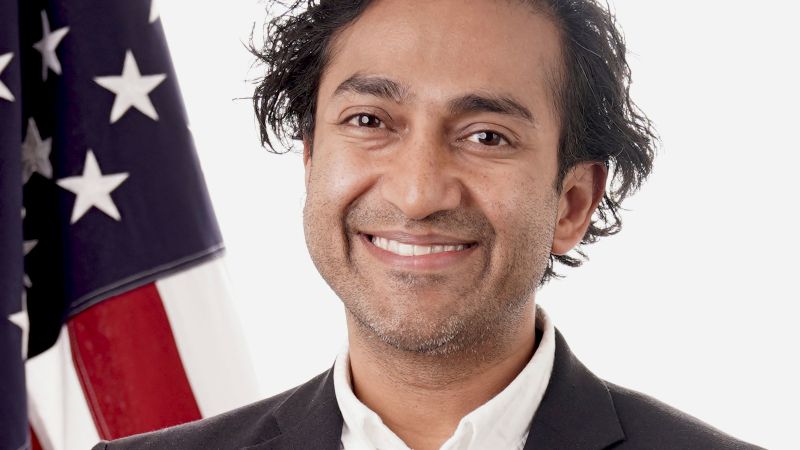Dr. Vinay Prasad, known for his controversial stance in regard to the United States Food and Drug Administration (FDA), made headlines recently after returning to his position at the regulatory agency just weeks following his resignation. This surprising turn of events unfolded in May when Dr. Prasad, a renowned hematologist oncologist, assumed a significant role at the FDA but resigned under considerable pressure. Both the White House and influential right-wing activist Laura Loomer were reported to have exerted pressure on him, leading to his decision to step down.
According to a statement from Andrew Nixon, a spokesperson for Health and Human Services, Prasad is resuming his leadership role at the Center for Biologics Evaluation and Research (CBER) at the request of the FDA. However, it remains uncertain whether he will also reclaim his previous role as the agency’s chief medical and scientific officer, as Nixon did not provide clarity on this matter when approached for comments by CNN.
In late July, Dr. Prasad publicly indicated his resignation, citing a desire not to detract from the essential endeavors of the FDA. He mentioned wanting to return to California to spend more time with his family, illustrating a compelling personal motivation behind his decision to leave. However, new revelations indicated that his resignation may have also stemmed from mounting political pressure. Sources familiar with internal discussions, who asked to remain anonymous to protect sensitive information, suggested that the White House had strongly encouraged his departure.
Activist Laura Loomer, known for her reach and connections within the political landscape, had been vocally critical of Dr. Prasad. She took to her website and various social media platforms, consistently referring to him as a “progressive leftist saboteur” who was allegedly undermining President Donald Trump’s initiatives at the FDA. Loomer’s criticisms focused on Dr. Prasad’s previous social media communications and podcast discussions, wherein she accused him of politically aligning with liberal figures and openly expressing disdain for Trump.
The backlash against Prasad was not only spearheaded by Loomer but was echoed by others, including former U.S. Senator Rick Santorum, who labeled him as “the man destroying @POTUS legacy for helping patients.” The criticism peaked when the Wall Street Journal published an opinion piece that scathingly referred to Dr. Prasad as “a Bernie Sanders Acolyte in MAHA Drag,” which exemplified the vitriolic environment surrounding his tenure.
Despite the chaos, Dr. Prasad’s track record as a vocal critic of certain drug approvals by the FDA and the U.S. government’s COVID-19 vaccination strategies fueled controversies. His previous decisions during the pandemic, including disagreements with FDA scientists about recommendations for new COVID-19 vaccines, drew scrutiny from both vaccine experts and former officials. Notably, memos from May highlighted that he had overridden FDA scientists concerning the broad use of new vaccines, a decision that had complicated implications for public health messaging.
In light of Dr. Prasad’s reinstatement, Loomer expressed her outrage in a social media post on X, labeling the decision as an “egregious personnel decision.” Her plans to intensify efforts to expose officials within the Department of Health and Human Services (HHS) and the FDA in the coming weeks imply that the scrutiny surrounding Prasad’s return is far from dissipating.
The curious case of Dr. Vinay Prasad serves as a notable example of the intersection of healthcare regulations, political dynamics, and public sentiment towards the FDA’s decision-making processes during a time of heightened scrutiny and public engagement. Reports indicated that his return could signal ongoing tensions between healthcare officials and political actors, retracing the complicated relationship between regulatory decisions and political motivations. The evolving narrative not only highlights Prasad’s controversial stance but also the significant influence of political advocacy on public health governance.











